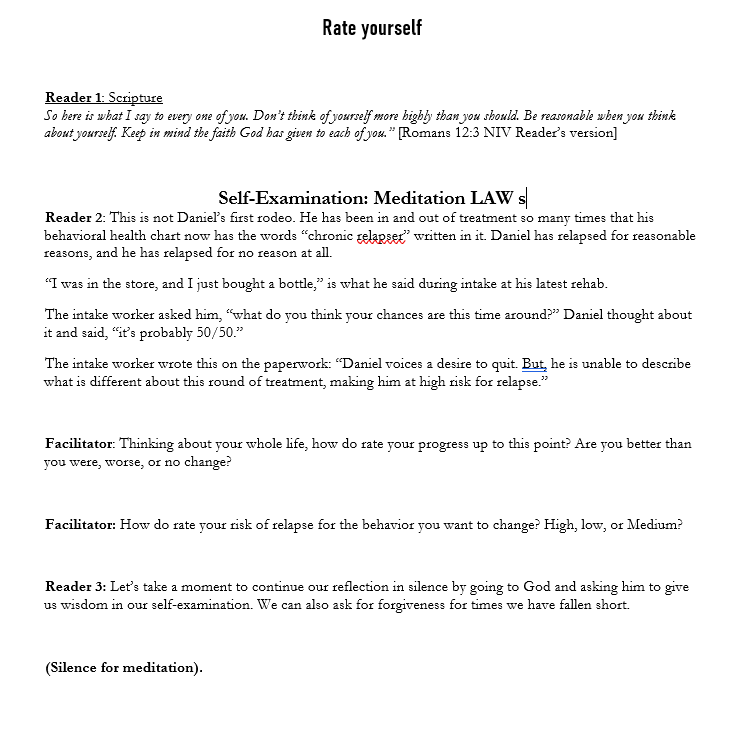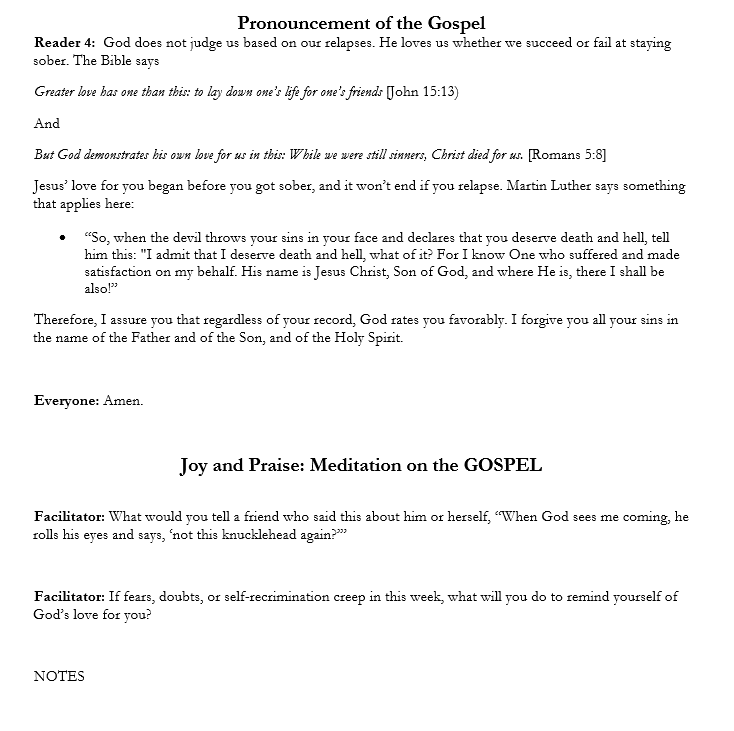Constant failure. Relapse and the Christian.
A man in a Resilient Recovery Group recently shared his frustration over chronically relapsing into drinking. “I am back at zero again. I’m starting over from scratch.”
It seems that each time he gets a few days of sobriety, he falls prey to Relapse’s sharp claws.
Sometimes relapses seem understandable, if not justifiable. A death in the family. A break up with an important girlfriend. A traumatic event.
Other times, there is no apparent reason for the relapse. “Someone offered me a beer.” “I was in the store and I just bought a bottle.”
It’s precisely this pattern that I want to address in my next lesson.
I want to tackle head-on the problem of perennial relapse.
While creating this lesson, there are certain traps I want to avoid. The most important trap is the "silver bullet” trap. In the silver bullet trap, a person makes a claim to have a pat answer for chronic relapsing. All such claims are false. No one has THE ANSWER. So I must avoid developing a lesson that could have one of these titles:
“The secret to stopping drinking”
“Three steps to eliminating relapse”
“One weird trick to getting sober for good”
Titles like the ones above probably could be written by very sincere people. They might be a compassionate outgrowth of observing chronic relapsers as they relapse. Their origin is the aching desire to see chronic replasers gain victory over addiction.
But silver bullets are traps. First, because they don’t exist. In fact, given the complexity of additions, they can’t exist.
But for the Christian such silver bullets are even “trappier”. That’s because silver bullets often convey the belief that our behavior is our hope. But as Christians, our behavior is not the end game. In fact, many good Christians have found themselves incapable of meeting Christianity’s moral and behavioral standards. And finding themselves incapable of meeting the standard, they have descended into despair. St Paul describes this despair better than anyone: “What a wretch I am! Who will save me from this body that is subject to death?”
That is not to say that we do not have hope. It’s just that our hope is not based on ourselves and our performance.
By focusing my lesson on a behavioral outcome, I miss the ability to stand with Martin Luther and say
“So when the devil throws your sins in your face and declares that you deserve death and hell, tell him this: "I admit that I deserve death and hell, what of it? For I know One who suffered and made satisfaction on my behalf. His name is Jesus Christ, Son of God, and where He is there I shall be also!”
This topic is especially poignant to me because I remember the words of a friend in recovery just a few weeks before drinking and isolation killed him. “I think Jesus sees me coming and says, ‘here’s that knuckle-head again.’” I remember almost screaming inside: “That is not how he sees you!”
I don’t remember exactly what I said. But I think actually did provide a fair and biblical explanation of why Jesus was not frustrated with him. Regardless of what I might have said, he left the group, ghosted us and his pastor for weeks, and passed away before I could see the fruit of that conversation. His death came from a concussion resulting from a fall. The fall itself was almost certainly the result of weeks of binging on alcohol.
With that interaction fresh in my memory, I now approach the lesson. How should I begin the lesson? I need a verse. These are few that come to mind:
Jesus telling Peter to forgive seven times seventy times (that implies that Jesus forgives an infinite number of times because if humans are asked to forgive a large number of times, we can assume God, who is omnipotent, will forgive many more times than humans.)
Jesus crying out in despair, “my God, my God, why have you forsaken me?” This may demonstrate that Jesus understands our hopeless feelings.
In trying to start with a verse, I am not finding anything that feels just right. After a few attempts to find the right verse, I change gears. I try a google search to find some other options. After a couple of false starts, Google finds a page of verses on self-examination. See them here.
After reviewing the list, I land on this verse.
So here is what I say to every one of you. Don’t think of yourself more highly than you should. Be reasonable when you think about yourself. Keep in mind the faith God has given to each of you.” [Romans 12:3 NIV Reader’s version]
Here is the lesson I developed. In a later blog, I’ll tell you how it went and any changes I made.


